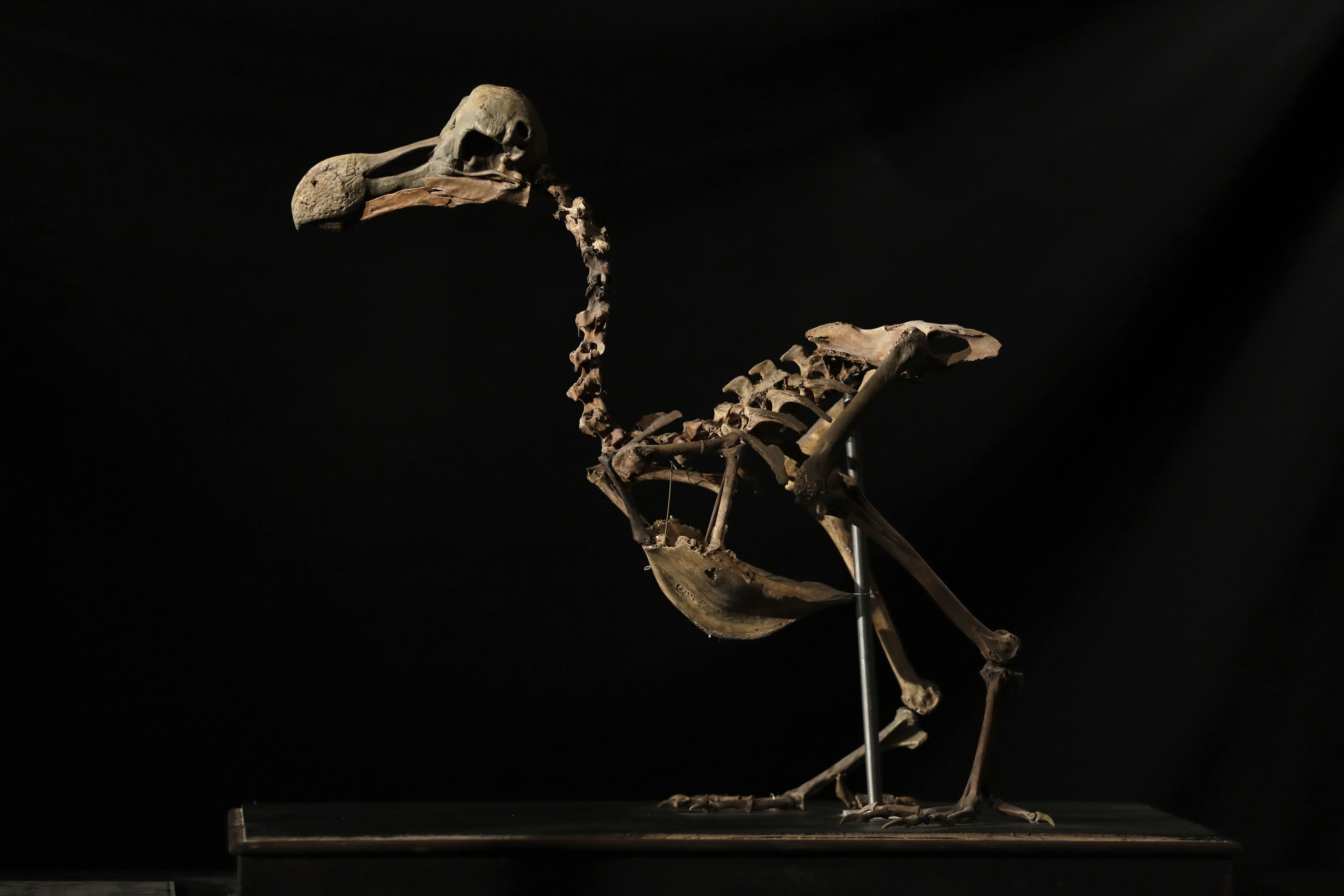Most people are familiar with word dodo—a term used for stupid or silly person. But this slang word is derived from a flightless bird with heavy body, large head, and curved bill which had its last existence almost three centuries ago. However, the unfortunate natural calamities and human brutal practices for hunting led this species extinct.
The extinct bird skeleton was put on for auction at Summers Place, Billingshurst, UK, and got sold for $430,000 to an unnamed collector.
It took approximately 40 years to an enthusiast, who is still unknown, to find and compile the rest of the bones starting from 1970’s; he purchased the major bone specimens from collectors or from auction sale. Accordingly, after realizing that 95% of the skeleton has been put together, he came to a conclusion to sell the scrupulously assembled skeleton, which got the highest bid of $430,000.

Errol Fuller, natural history curator at Summers Place Auctions, said the masterpiece was an “incredibly uncommon” and “also defines as one the marvelous representation of extinction”.
The spokesperson of the auction said there are merely 12 specimens of the complete skeletons around the globe placed in museums.
But regarding the this latest one, owned by a private collector, a question arises: Where will it be placed, and will it be availed for the public display in the future?
The majority of the bone specimens are discovered in Mauritius, where it was first seen by the Dutch sailors in 1598.
The Mauritian Government has restricted the digging and exports of skeletons, which made the auctioneers or the collectors to conclude that the chances of dodo skeleton for the sale will be reduced.
The Summers Place in the UK sold a long-necked Diplodocus longus dinosaur skeleton to the Denmark Museum for the price $497012 in 2013.
Hence, this finding from the mother earth is a conclusion of rising urbanization of the mankind which has destructive history of disturbing the ecological stability and fossils since many centuries.
